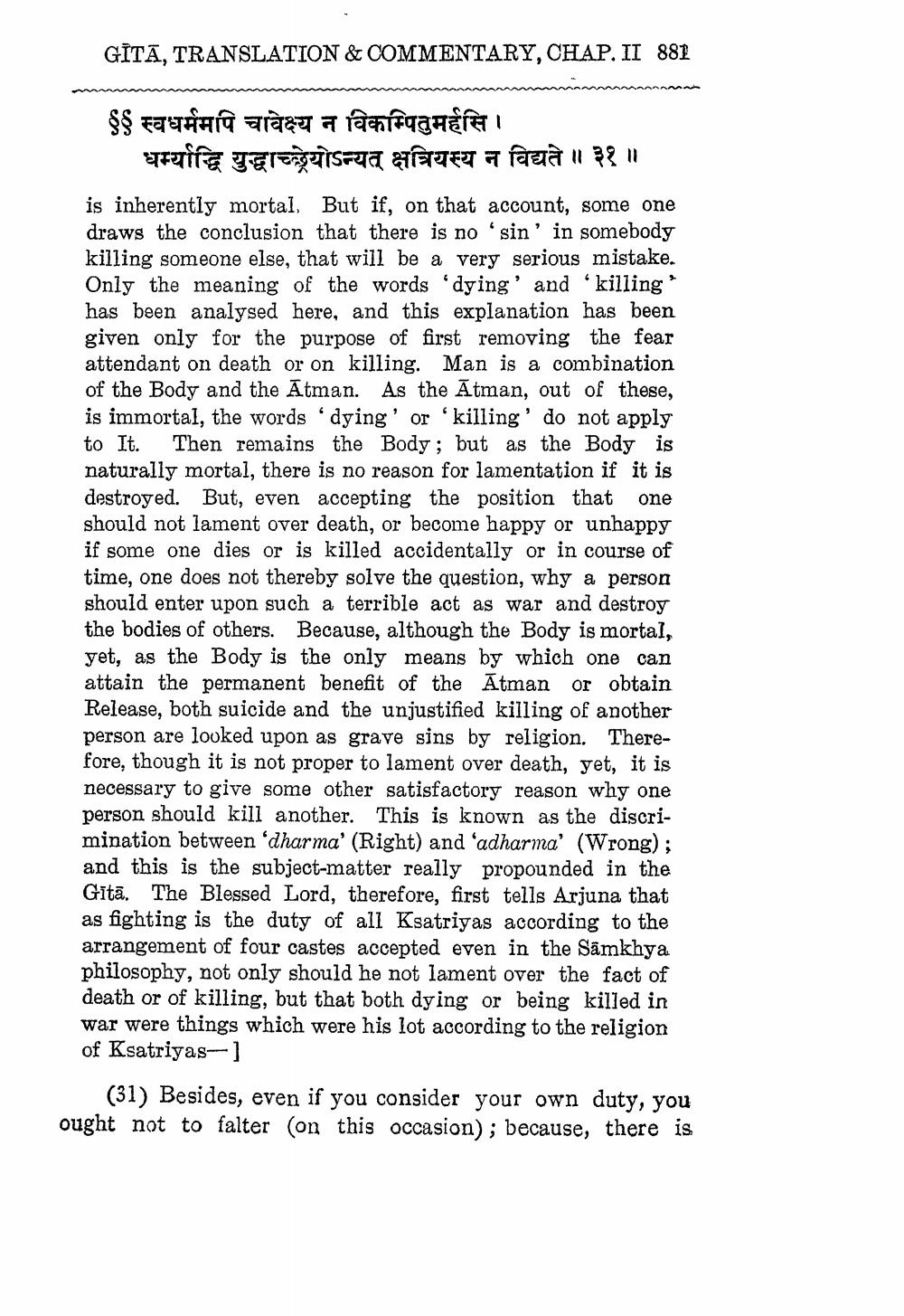________________
GĪTĀ, TRANSLATION & COMMENTARY, CHAP. II 881
$ स्वधर्ममपि चावेक्ष्य न विकम्पितुमर्हसि ।
धाद्धि युद्धाच्छ्योऽन्यत् क्षत्रियस्य न विद्यते ॥ ३१॥
is inherently mortal. But if, on that account, some one draws the conclusion that there is no 'sin' in somebody killing someone else, that will be a very serious mistake. Only the meaning of the words 'dying' and 'killing has been analysed here, and this explanation has been given only for the purpose of first removing the fear attendant on death or on killing. Man is a combination of the Body and the Atman. As the Atman, out of these, is immortal, the words 'dying' or 'killing' do not apply to It. Then remains the Body; but as the Body is naturally mortal, there is no reason for lamentation if it is destroyed. But, even accepting the position that one should not lament over death, or become happy or unhappy if some one dies or is killed accidentally or in course of time, one does not thereby solve the question, why a person should enter upon such a terrible act as war and destroy the bodies of others. Because, although the Body is mortal, yet, as the Body is the only means by which one can attain the permanent benefit of the Atman or obtain Release, both suicide and the unjustified killing of another person are looked upon as grave sins by religion. Therefore, though it is not proper to lament over death, yet, it is necessary to give some other satisfactory reason why one person should kill another. This is known as the discrimination between 'dharma' (Right) and 'adharma' (Wrong); and this is the subject-matter really propounded in the Gītā. The Blessed Lord, therefore, first tells Arjuna that as fighting is the duty of all Ksatriyas according to the arrangement of four castes accepted even in the Samkhya philosophy, not only should he not lament over the fact of death or of killing, but that both dying or being killed in war were things which were his lot according to the religion of Ksatriyas-1
(31) Besides, even if you consider your own duty, you ought not to falter (on this occasion); because, there is




